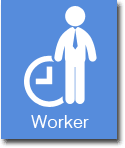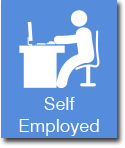Employment status and rights
What type of worker are you?
What type of worker are you?
All workers with a right to work in the UK have employment rights.
If you are not a UK citizen, there may be conditions attached to your visa that restrict the hours or type of work you may be employed to do. See the Home Office website for more information. If your employer is threatening to report you to the Home Office for any reason, it is important you get advice from an immigration solicitor.
If you are a trade union member, check if your union has an arrangement with immigration lawyers who can provide advice.
You can find a solicitor at the Law Society here: https://www.lawsociety.org.uk/en/public/for-public-visitors/using-a-solicitor/find-a-solicitor
Trade unions stand up for the rights of workers from all countries, regardless of their immigration status or race. Trade unions build solidarity between workers which stops employers dividing workers and driving down conditions. See here to find out how to join a union at, https://findyourunion.tuc.org.uk/.
The rights you are entitled to at work will depend on your employment status .
There are generally three legal categories of workers in the UK: employees, workers (such as casual or agency workers) and the self-employed. Click on the links below to find out more.
Note: it is important you speak to a union rep or a legal professional go to, https://www.lawsociety.org.uk/en/public/for-public-visitors/using-a-solicitor/find-a-solicitor for advice on how to claim these rights – in a legal case, only an employment tribunal can determine employment status.
|
|
|

















 EMPLOYEE
EMPLOYEE WORKER
WORKER SELF-EMPLOYED WORKER
SELF-EMPLOYED WORKER